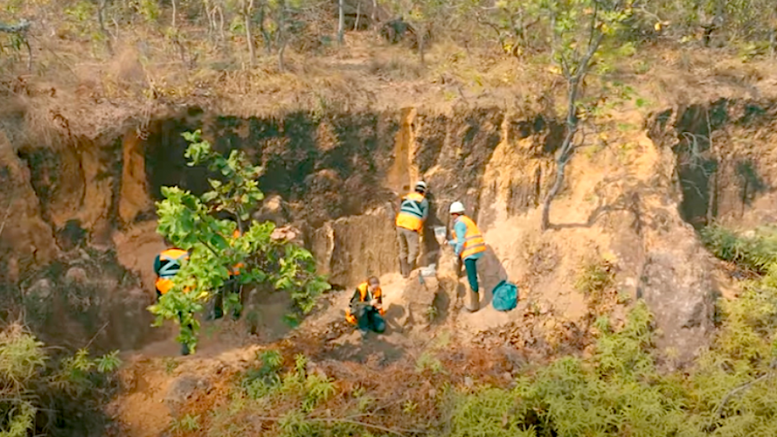Initial capital costs for Aclara Resources‘ (TSX: ARA) Carina Module rare earths project in Brazil are estimated at US$576 million, with a US$1.2 billion net present value (NPV), according to a new preliminary economic assessment (PEA).
The PEA also gives the ionic clay rare earths project in the central Goiás state a 29% internal rate of return over a 17-year production span and a 3.6-year period to recover the investment after commissioning, which is projected to start in 2029 due to Brazil’s lengthy permitting process.
The recovery of rare earths from Carina is fully compatible with the technology patented and being executed on a pilot scale at Aclara’s Penco Module project in Chile. The method was designed to minimize both cost and carbon dioxide footprint.
“The project design emphasizes eco-friendly practices, avoiding explosives and milling, maximizing water recirculation, and employing a common fertilizer as the main reagent,” CEO Ramon Barua said in the statement.
The PEA marks another milestone in the rare earths space in Goiás, where earlier this month Serra Verde declared commercial production at its Pela Ema project, marking it as the second producing rare earths mine in the Americas, behind MP Materials’ (NYSE: MP) Mountain Pass mine in California. Rare earths, used in cellular phones, computers and magnets for green energy technologies and electric vehicles, are highly sought by Western countries eager to secure supply chains outside of China, which dominates the mining and processing of the 17 rare metals.
Aclara’s PEA also estimates annual production of 208 tonnes of dysprosium and terbium, representing about 13.7% of China’s 2023 official production, and 1,190 tonnes of neodymium and praseodymium. The concentration of rare earth elements in the mixed carbonate is estimated to be 91.9%.
The company is now pursuing additional resources through the completion of a reverse circulation drilling campaign, which is already underway and scheduled to be completed in the second quarter of the year.
In a research note on Wednesday, Canaccord Genuity analyst Katie Lachapelle said the PEA is a positive development for Aclara because among other reasons, it gives the company another avenue for future growth amid the permitting challenges at Penco.
Canaccord estimates an un-risked NPV of US$744 million from the start of construction, which is about 37%
lower than the PEA outcome, mainly due to lower assumed rare earth element prices, Lachapelle said. When that is discounted back to Jan 1, 2025, the NPV (at 10% discount) comes out to US$425 million.
Lachapelle added that following the State of Goias’ support for Serra Verde’s Pela Ema project, Canaccord is confident ARA will be able to permit Carina Module.
According to an initial resource for Carina, published last month, the project hosts an estimated 168 million inferred tonnes of material grading 1,510 parts per million (ppm) total rare earth oxides, containing average dysprosium and terbium grades of 42.1 ppm and 6.9 ppm, respectively. It is also said to contain significant quantities of neodymium and praseodymium.
The resource was estimated using the results obtained from 1,630 metres of drilling across 201 auger holes and 1,418 samples.
Brazil holds the third highest number of rare earths projects in the Americas, behind Canada and the United States.
Shares in Aclara were up 1.7% to 58¢ apiece on Thursday at mid-day in Toronto, valuing the company at $94.7 million. Its shares traded in a 52-week range of 35¢ and 60¢.


Be the first to comment on "Aclara study pegs Brazil rare earths project NPV at US$1.2B"